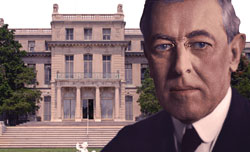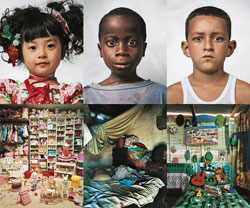Patrick Leahy Ed.D., and Communication faculty member Matt Harmon invited Zaneta Rago-Craft, Ed.D., Director of the Intercultural Center on their weekly “Monmouth Mondays” podcast on Tuesday, Jan. 26. The trio discussed the different programs and initiatives the University has to offer when it comes to diversity and inclusion.
Rago-Craft joined the University in the summer of 2019, becoming the first director of the newly established Intercultural Center. She was born and raised in Long Branch, so taking up the position “felt a bit like coming home.”
“It’s an area that I’m deeply passionate about,” Rago-Craft said. “I’m coming from an institution that has one of the oldest cultural centers on a college campus in the country, and I just felt it was a really great opportunity to marry my interest of giving back to my hometown and my expertise in diversity and inclusion efforts, particularly within the lens of intercultural centers on college campuses.”
Leahy and Rago-Craft began discussions about the importance of diversity and inclusion before either of them began at the University, Leahy explained. Rago-Craft has since taken on the role of Advisor to the President on Diversity and Inclusion.
“I wanted to make sure that she had direct access to me and to our senior team,” Leahy said. “I just wanted to make sure that [Rago-Craft]’s wisdom was present at all of our University decisions, not just those that could be sort of categorized as diversity and inclusion, but that she would be present and have a real say in all of the University decisions. She’s holding down that dual role now.”
Rago-Craft’s dual role came right before the COVID-19 pandemic, an unprecedented occasion that required new and inventive methods of leadership.
“It’s certainly been a test of creativity,” Rago-Craft said. “I cannot say enough how much a physical space is important to things like community building, fellowship and students. We really had to pivot to virtual [methodology]. I would actually say that we’ve had better attendance at some of our virtual programming than we did in person, so there is some silver lining to the virtual programming that we’ve created with faculty, staff, and students across the campus.”
Last semester, the University made the unanimous decision to rename “Wilson Hall” to “The Great Hall.” Leahy considered it a symbolic obstacle to the University’s sincerity around diversity and inclusion.
“Here, you have this very complicated figure who over the recent years historians have clarified his record on race relations and it’s not a good record,” Leahy said of Woodrow Wilson. “[Changing the name] is not the heart of the matter. The heart of the matter is the community that we create. We just felt like if this is a symbol or some kind of obstacle to us creating that more fully, let’s do something about it.”
Rago-Craft says every institution has their own journey on this type of decision-making. “Almost every campus has a name with a complicated or racist, homophobic or sexist history,” Rago-Craft said. “I think what’s important in this particular decision is that it’s not just about the changing of the name, it’s also about bringing to light that history. You can remove a name from a building and restore its original name while contextualizing the name that you changed. I think that is the core of what we are as a University; we’re here to teach.”
Leahy also mentioned his intention to transform the Great Hall into a student centric building.
“There’s going to be more investment in the Great Hall to turn it into a hub of activity for our students, faculty and staff,” Leahy said.
IMAGE TAKEN from History.com




